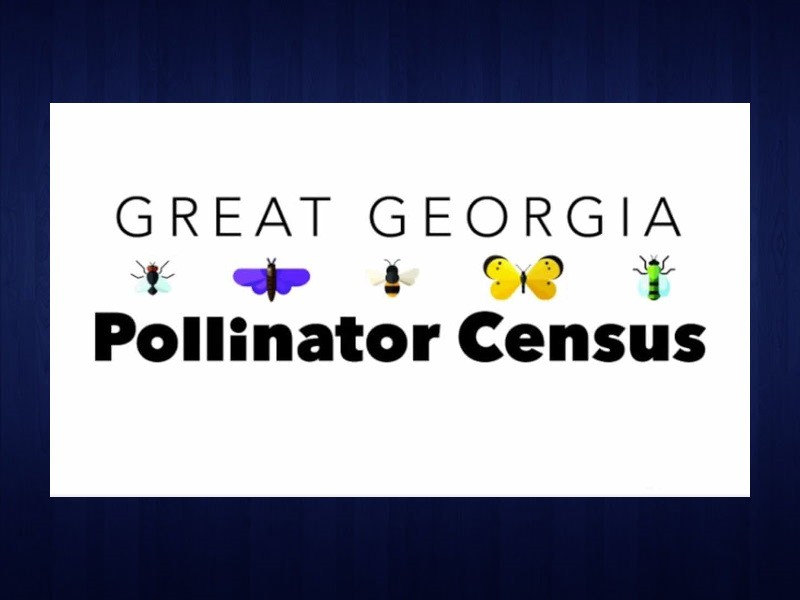The Great Georgia Pollinator Census is kicking off its 2022 count Friday and Saturday across the state.
People of all ages can sign up to participate in the Census, which involves counting and identifying the number of pollinator insects that land on a pollinator plant within a 15 minute span.
Becky Griffin, the Census program coordinator and community and school garden coordinator for the University of Georgia Extension, created this citizen science initiative in 2019 to give both gardeners and schoolteachers a background in entomology.
“I was working with school teachers, and found out that school teachers who are studying to be a biology teacher, for example, when they are in college, they're really not getting any entomology training,” Griffin said. “For them to actually teach entomology is a big ask. So this program was created to educate our gardeners, and to have a no cost STEAM program for school teachers for like a grab-and-go. They don't have to learn a lot of Entomology, everything is really there for them, for their students and themselves to participate.”
According to Griffin, 135 schools have participated in the Census in the past. She said many schools hold school-wide events, where teachers can combine teaching science and math into one lesson.
The Census also has received widespread participation from other citizens. It has 25 project partners across the state.
In 2021, 5,941 people across 116 counties counted over 100,000 insects. Several businesses and religious institutions held counting events as well, such as Slow Pour Brewing in Gwinnett County and The Monastery of the Holy Spirit in Rockdale County.
For the first time this year, participants in South Carolina will also join the count.
“It's just a testament to the people, they love this project,” Griffin said. “They're willing to go out and spend 15 minutes for an insect to better our world. And it's just humbling that so many people are willing to do that and get excited about the project as much as I am.”
To join in the counting fun, head to the Census’ website and download an insect counting sheet and an insect identification guide. These sheets divide insects into eight different categories: carpenter bees, bumble bees, honey bees, small bees, wasps, flies, butterflies/moths and “other” insects that do not fit in these categories.
Next, pick a pollinating plant – this can be any plant with flowers. Griffin said to consider different flower sizes and colors to attract a diversity of insects.
“You also want to think about being in Georgia,” Griffin said. “Normally in August, we are in drought. We want to plant things that handle drought. We want to plant things that don't have a lot of pathogens or pests or disease issues. So we call it a sustainable pollinator habitat. We want people to plant things that don't require a lot of inputs and a lot of work and give great nutrition and a great resource to the pollinators.”
Helping Georgians to create pollinator habitats is another focal point of the Census project. Griffin said 436 new pollinator gardens were created in response to the 2021 Census.
“When people are considering the Census and the impact it has, every year I get one comment multiple times,” Griffin said. “It is from seasoned gardeners to novice gardeners. And they say to me, ‘Becky, I had no idea of the diversity and the number of pollinators that visit my garden.’”
Gardeners can start uploading their counts on Friday to the Census portal. In the event of rain on Friday or Saturday, the portal will also accept counts from Sunday or Monday.
Then, the submitted data will be sent to researchers.
“[The data] is going to be used over time to spot trends in our pollinator populations,” Griffin said. “And [the Census] is a program that is not just [about] counting on those August dates, but we also educate about building up pollinator habitat. Being involved in the project means you're exposed to all sorts of resources on creating pollinator habitats. You get to be part of a project that is bigger than you and is very important, and that your data is out there for anyone to use and access.”
More info about the census, such as how to participate and a link to submit your pollinator count, can be found on the census website.

Citizens across the state will count the number of pollinating insects in their gardens this Friday and Saturday.
http://accesswdun.com/article/2022/8/1125334/the-great-georgia-pollinator-census-begins-its-2022-insect-count
